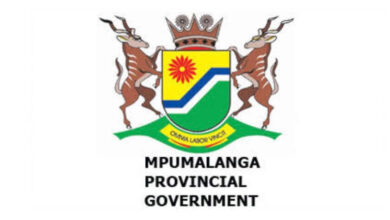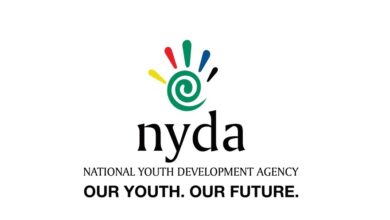20 Signs You Have a Drinking Problem

Alcohol is a significant part of social life for many young people in South Africa, often associated with celebrations, relaxation, and socializing. While drinking in moderation can be a harmless pastime, it’s important to recognize when alcohol consumption becomes problematic. Excessive drinking can lead to serious health issues, strained relationships, legal troubles, and a decline in overall well-being.
Understanding the signs of a drinking problem is crucial for taking early action and seeking help if necessary. This article explores 20 warning signs that may indicate you have a drinking problem. Each sign includes a detailed description, a real-life scenario, reasons why it’s a red flag, and practical advice on how to navigate and address the issue. By identifying these signs early, you can take proactive steps to ensure that your relationship with alcohol remains healthy and balanced.
1. Drinking to Feel Normal
Relying on alcohol to feel normal or function daily.
Scenario: You feel shaky or anxious without a drink and need alcohol to steady your nerves or start your day.
Why It’s a Red Flag: Using alcohol to feel normal indicates physical dependence, which can have serious health consequences.
How to Navigate It: Consult a healthcare professional to address physical dependence. Seek support from friends, family, or support groups to help reduce reliance on alcohol.
2. Increased Tolerance
Needing more alcohol to feel the same effects.
Scenario: What used to be a buzz from two beers now requires four or five.
Why It’s a Red Flag: Increased tolerance can indicate your body is becoming accustomed to alcohol, leading to greater consumption.
How to Navigate It: Monitor your drinking patterns and try cutting back. Seek support if reducing your intake is challenging.
3. Neglecting Responsibilities
Failing to fulfill duties at school, work, or home due to drinking.
Scenario: You miss classes or assignments because of hangovers or drinking sessions.
Why It’s a Red Flag: Alcohol is interfering with your daily responsibilities, which can have long-term consequences.
How to Navigate It: Prioritize your responsibilities and limit drinking to avoid interference. Seek help if necessary to manage your drinking habits.
4. Drinking to Cope with Emotions
Using alcohol to deal with stress, anxiety, or depression.
Scenario: You reach for a drink whenever you feel upset or stressed.
Why It’s a Red Flag: Using alcohol as a coping mechanism can worsen emotional issues and lead to dependency.
How to Navigate It: Explore healthier coping strategies, such as exercise or talking to a friend. Consider professional support if emotional issues persist.
5. Hiding Your Drinking
Concealing the amount or frequency of your drinking from others.
Scenario: You lie about how much you drink or hide bottles.
Why It’s a Red Flag: Hiding your drinking suggests you’re aware it’s problematic and are ashamed or worried about judgment.
How to Navigate It: Be honest with yourself and those around you about your drinking. Seek support to address your concerns.
6. Frequent Blackouts
Regularly experiencing memory loss after drinking.
Scenario: You can’t remember events or conversations from the previous night after drinking heavily.
Why It’s a Red Flag: Blackouts indicate excessive drinking and can lead to dangerous situations.
How to Navigate It: Limit your alcohol intake and avoid binge drinking. Seek help if blackouts continue.
7. Drinking First Thing in the Morning
Having a drink as soon as you wake up.
Scenario: You need a drink to start your day or to feel normal.
Why It’s a Red Flag: Drinking in the morning suggests dependence and can impact your daily functioning.
How to Navigate It: Replace morning drinks with healthier habits like exercise or a nutritious breakfast. Seek professional help to address underlying issues.
8. Neglecting Personal Care
Ignoring personal hygiene and self-care due to drinking.
Scenario: You skip showers, eat poorly, or neglect grooming because of your drinking habits.
Why It’s a Red Flag: Neglecting self-care can indicate alcohol is taking precedence over your well-being.
How to Navigate It: Establish a routine that prioritizes self-care. Reduce alcohol consumption and seek support if needed.
9. Relationship Issues
Conflicts with friends, family, or partners related to your drinking.
Scenario: Loved ones express concern or frustration about your drinking habits.
Why It’s a Red Flag: Drinking is causing strain in your relationships, which can lead to isolation.
How to Navigate It: Listen to the concerns of your loved ones and consider their perspectives. Seek support to manage your drinking and improve relationships.
10. Loss of Interest in Activities
Losing interest in hobbies or activities you once enjoyed.
Scenario: You stop playing sports, attending clubs, or pursuing interests because of drinking.
Why It’s a Red Flag: Alcohol is taking over your life and diminishing your engagement in meaningful activities.
How to Navigate It: Re-engage with activities you enjoy and limit drinking. Seek help if alcohol continues to interfere.
11. Frequent Accidents or Injuries
Having accidents or getting hurt due to drinking.
Scenario: You have frequent falls, bruises, or accidents while under the influence.
Why It’s a Red Flag: Alcohol impairs your coordination and judgment, leading to increased risk of injury.
How to Navigate It: Reduce your alcohol intake and avoid risky situations while drinking. Seek support if accidents persist.
12. Ignoring Health Problems
Continuing to drink despite negative health effects.
Scenario: You have liver issues, high blood pressure, or other health problems aggravated by alcohol, but you keep drinking.
Why It’s a Red Flag: Ignoring health issues can lead to serious, long-term consequences.
How to Navigate It: Prioritize your health and seek medical advice. Reduce or eliminate alcohol consumption to prevent further harm.
13. Inability to Stop Drinking
Finding it hard to cut down or stop drinking even if you want to.
Scenario: You attempt to limit your drinking but find yourself unable to follow through.
Why It’s a Red Flag: Difficulty in controlling your drinking suggests dependence.
How to Navigate It: Seek support from friends, family, or a professional to develop a plan for reducing or stopping alcohol use.
14. Mood Swings and Irritability
Experiencing drastic mood changes and irritability related to drinking.
Scenario: You become easily agitated or depressed when you’re not drinking.
Why It’s a Red Flag: Alcohol can affect your mood and emotional stability, leading to dependence.
How to Navigate It: Monitor your mood changes and consider reducing alcohol consumption. Seek professional help if mood swings continue.
15. Financial Problems
Spending excessive amounts of money on alcohol.
Scenario: You prioritize buying alcohol over paying bills or other essential expenses.
Why It’s a Red Flag: Financial difficulties can indicate that drinking is taking over your priorities and responsibilities.
How to Navigate It: Create a budget that limits alcohol spending. Seek financial counseling and support to manage your finances better.
16. Legal Issues
Getting into trouble with the law due to drinking.
Scenario: You’ve had DUI charges, been arrested for public intoxication, or faced other legal issues related to alcohol.
Why It’s a Red Flag: Legal problems can have long-lasting consequences and indicate a lack of control over drinking.
How to Navigate It: Address the legal issues and take steps to reduce or stop drinking. Seek legal and professional support if needed.
17. Lying About Drinking
Being dishonest about how much or how often you drink.
Scenario: You downplay your drinking habits when asked by friends or family.
Why It’s a Red Flag: Dishonesty about drinking suggests you’re aware it’s problematic and are avoiding judgment or concern.
How to Navigate It: Be honest with yourself and others about your drinking habits. Seek support to address any underlying issues.
18. Drinking Despite Consequences
Continuing to drink even when it causes problems in your life.
Scenario: You face issues at school, work, or in relationships because of drinking but continue anyway.
Why It’s a Red Flag: Ignoring negative consequences can lead to further problems and indicates a lack of control.
How to Navigate It: Reflect on the impact of your drinking and take steps to reduce or stop. Seek help if you find it difficult to change on your own.
19. Feeling Ashamed or Guilty About Drinking
Experiencing feelings of shame or guilt after drinking.
Scenario: You regret your actions or feel embarrassed about how much you drank.
Why It’s a Red Flag: Shame and guilt suggest that drinking is affecting your self-esteem and well-being.
How to Navigate It: Address the root causes of your drinking and seek healthier coping mechanisms. Talk to a counselor if these feelings persist.
20. Inability to Enjoy Social Events Without Alcohol
Feeling that you can’t have fun or relax without drinking.
Scenario: You avoid social gatherings unless alcohol is available.
Why It’s a Red Flag: Relying on alcohol for enjoyment indicates potential dependence and can limit your social interactions.
How to Navigate It: Find alternative ways to enjoy social events without alcohol. Gradually reduce your intake and seek support if necessary.
Recognizing these signs can help you identify if your drinking is becoming problematic. If you notice any of these red flags in your life, it’s important to take action. Reach out to friends, family, or professionals for support. By addressing these issues early, you can take steps toward healthier habits and a better quality of life.
For more information and assistance in fighting substance abuse, call the South African Depression and Anxiety Group (SADAG) 24 hour Substance Abuse Helpline on 0800 12 13 14. You can also call the South African National Council on Alcoholism and Drug Dependence (SANCA) on 011 892 3829or send a WhatsApp message to 076 535 1701. You can also reach Alcoholic Anonymous on 0861 435 722 or chat with them here




